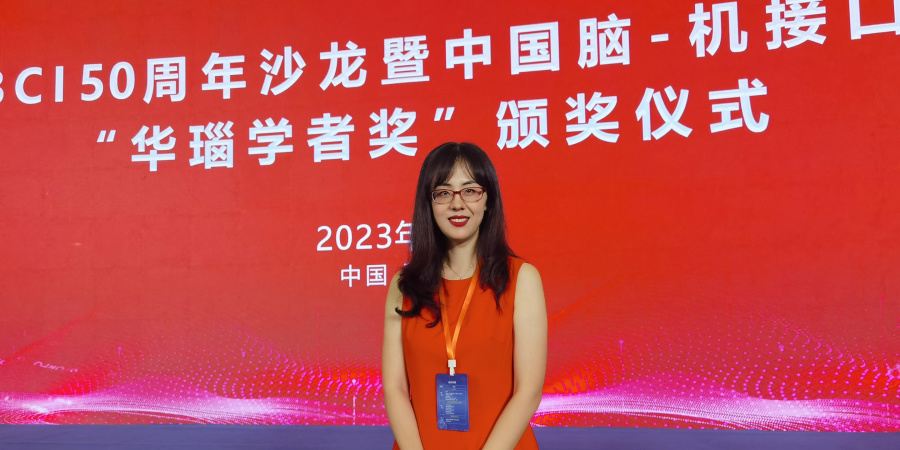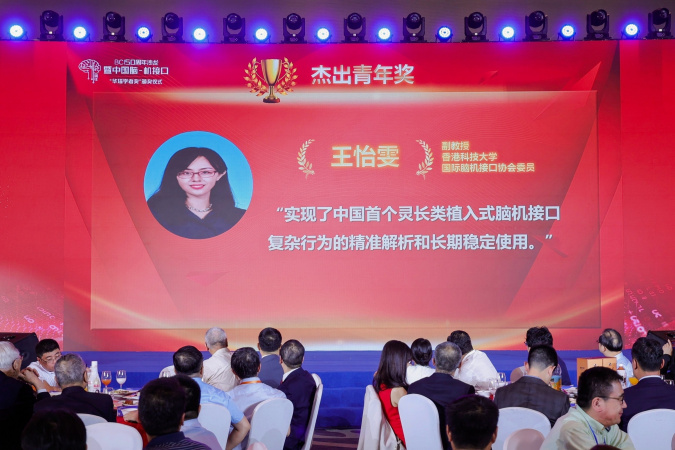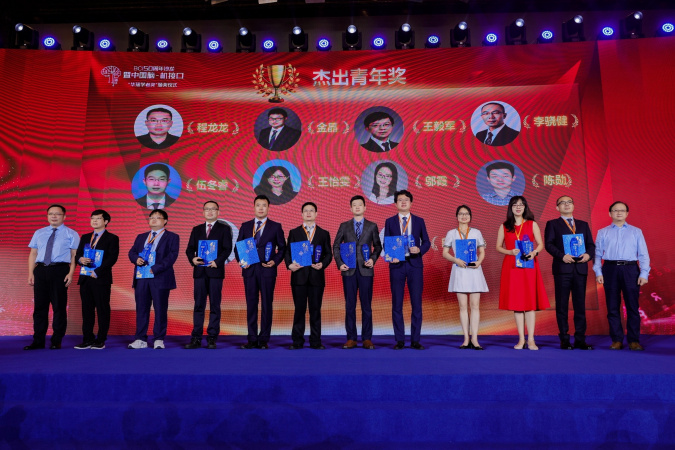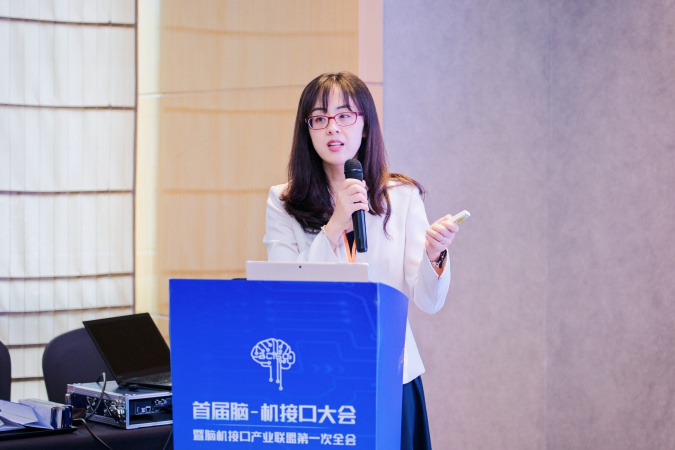Prof. WANG Yiwen Won Distinguished Young Scholar Award in Inaugural National Brain-Computer Interface Conference
Associate Professor WANG Yiwen in the Departments of Electronic & Computer Engineering and Chemical & Biological Engineering was honored with a Distinguished Young Scholar Award(華瑙學者獎—傑出青年獎)in the first National Brain-Computer Interface Conference(全國首屆腦—機接口大會)held in Tianjin on July 3-5, 2023.
Prof. Wang was recognized for her contributions in “realizing the accurate interpretation and long-term stable use of the complex behavior of China’s first primate implantable brain-computer interface”(實現了中國首個靈長類植入式腦機接口複雜行為的精準解釋和長期穩定使用). A total of 17 awards(華瑙學者獎)were presented at the conference, including two Lifetime Achievement Awards, five Distinguished Scholar Awards, and 10 Distinguished Young Scholar Awards.
Prof. Wang’s research interests lie in neural decoding of brain-machine interfaces (BMIs), adaptive signal processing, computational neuroscience, and neuromorphic engineering. Her technical contributions to the engineering profession in the BMI area have been well recognized internationally. She has held numerous leadership roles, such as board member of the Brain-Computer Interface Society and chair of the Technical Committee on Neuroengineering of the IEEE Engineering in Medicine & Biology Society (EMBS). She received the IEEE EMBS Distinguished Service Award 2023 and has been appointed a Distinguished Lecturer of IEEE EMBS since 2022. She holds one US patent and has authored more than 100 peer-reviewed publications.
Prof. Wang gained her PhD in Electrical and Computer Engineering from the University of Florida in 2008 and subsequently joined HKUST as Research Associate in the Department of Electronic and Computer Engineering. She was on the faculty at Zhejiang University before rejoining HKUST in 2017 as Assistant Professor.
Centering on the theme of forging a thriving industry ecosystem in brain-computer interconnection, the conference aims to foster closer collaboration between the government, industry, academia, research sectors and society. It brought together more than 600 academicians, experts and practitioners from over 200 universities, research institutes, clinical units and business enterprises to showcase the latest technology and discuss future development of the field. Various hot topics related to brain-computer interface (BCI) technologies were covered, such as core components, key devices, high-end equipment, advanced algorithms, and application scenarios.




